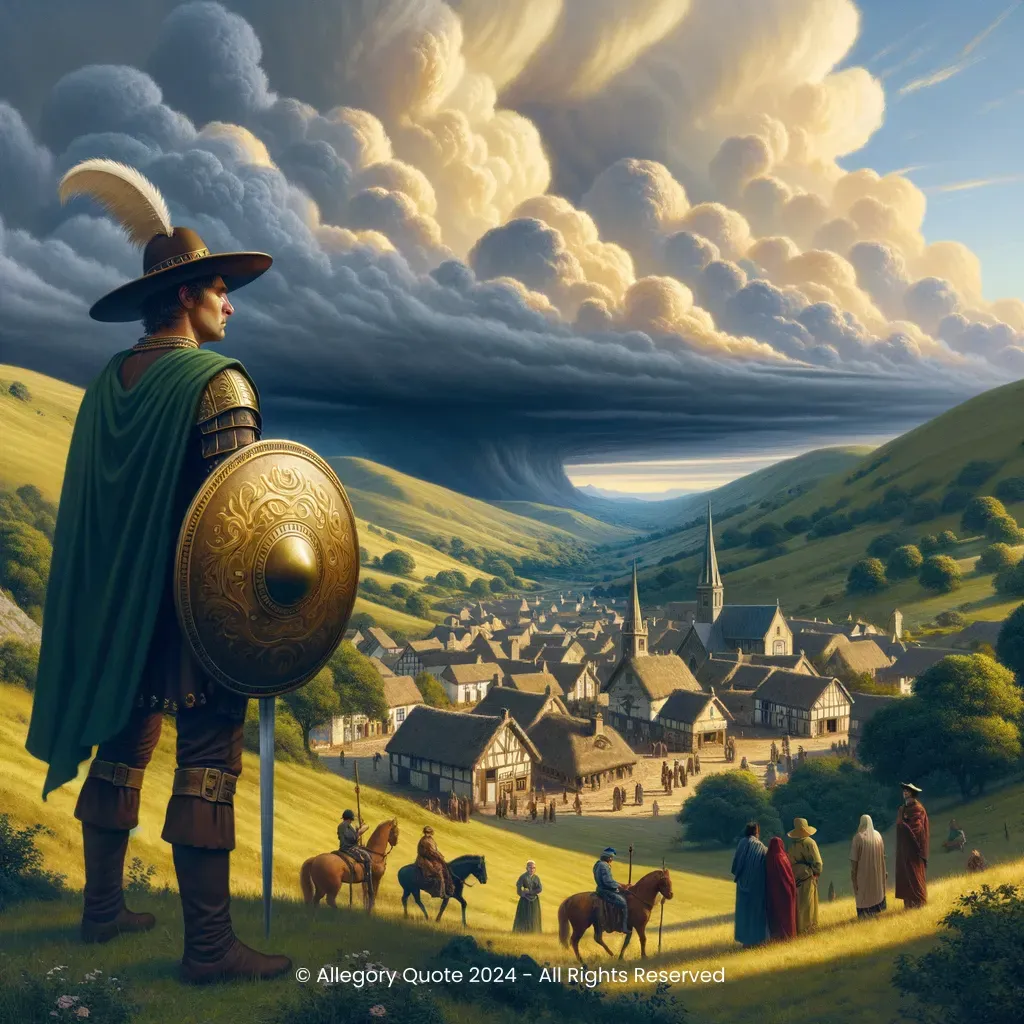Forewarned is forearmed

0
0
0
0
- Meaning
- This phrase implies that having prior knowledge of a possible danger or challenge gives a person an advantage in dealing with it. In essence, when you're aware of potential threats, you can take measures to avoid or mitigate their impact. This concept is deeply tied to human survival instincts and the value of preparation and strategic thinking.
- Allegory
- The village represents daily life and normalcy, emphasizing that challenges can arise even in peaceful times. The guardian is an embodiment of preparation and readiness, with the shield symbolizing protection and the sword readiness for action. The storm clouds symbolize potential threats or challenges that one must be aware of. The serene village and bustling townsfolk illustrate the contrast between everyday life and the necessity of remaining vigilant. The overall image reinforces the proverb's message: being forewarned equips one with the means to face future challenges successfully.
- Applicability
- In personal life, this phrase encourages us to stay informed and proactive. Whether it's preparing for a challenging project at work, anticipating a difficult conversation, or simply planning for a trip, being aware and prepared can significantly improve our chances of success. It advocates for vigilance and readiness in both personal and professional situations.
- Impact
- This phrase has had a lasting impact on culture and society. It is often used in educational settings, military strategies, and everyday life to emphasize the importance of preparation. It has influenced various fields, including business, where risk assessment and management are crucial. The phrase is frequently cited in literature, speeches, and daily conversations when discussing strategic planning and preparedness.
- Historical Context
- The phrase dates back to the 16th century, rooted in the Latin proverb "Praemonitus, praemunitus." During this period, Europe experienced significant social, political, and scientific changes. Awareness and preparedness were crucial in times of exploration, discovery, and warfare.
- Criticisms
- There aren’t many criticisms or controversies surrounding this phrase, as its meaning is straightforward and universally understood. However, some might argue that over-preparation can lead to unnecessary anxiety or caution, potentially stifling spontaneity and creativity.
- Variations
- Variations of this phrase exist in different cultures, often emphasizing the importance of preparation. For instance, in Japanese culture, there is a saying, "Sonae areba urei nashi," which means "If you are prepared, you need not worry." This reflects a universal understanding of the value of foresight.
-

Give me liberty, or give me death!
-

Appearances can be deceiving.
-

The calm before the storm.
-

Keep your friends close, and your enemies closer.
-

Even a cornered rat will bite a cat.
-

Blood is thicker than water, but it can still be contaminated.
-

It is better to be feared than loved, if you cannot be both.
-

The writing is on the wall.
-

The road to hell is paved with good intentions.
-

Gaudeamus igitur.
-

You can't have your cake and eat it too.
-

Actions speak louder than words.
No Comments